Updated PPP Certification Information – Treasury FAQ’s and Audits
The PPP loan program is one of the most talked about tools available for small businesses in this unprecedented time. The program was designed to give small businesses access to a highly forgivable loan to help keep employees on the payroll. In what appears to be in response to large well-known companies being under scrutiny for accepting PPP dollars, the SBA and Treasury updated their Frequently Asked Questions and unfortunately in doing so added more uncertainty around the qualifications for the program.
Originally the CARES act created a more streamlined way for small businesses to access SBA loans, specifically the expansion of the SBA program used to fund the PPP loans. One of the ways it did this was suspending a traditional SBA requirement that a borrower needed to demonstrate need before the borrower was eligible. Traditionally this included the inability to borrow from another source. The CARES act only required a borrower to certify in good faith a number of items including the fact that “current economic uncertainty makes the loan necessary to support ongoing operations” and that the funds “will be used to retain workers and maintain payroll or to make mortgage, lease, and utility payments.”
In recent days the SBA and Treasury released new FAQ’s that create a number of questions. Of special note FAQ #31 reads:
Question: Do businesses owned by large companies with adequate sources of liquidity to support the business’s ongoing operations qualify for a PPP loan?
Answer: In addition to reviewing applicable affiliation rules to determine eligibility, all borrowers must assess their economic need for a PPP loan under the standard established by the CARES Act and the PPP regulations at the time of the loan application. Although the CARES Act suspends the ordinary requirement that borrowers must be unable to obtain credit elsewhere (as defined in section 3(h) of the Small Business Act), borrowers still must certify in good faith that their PPP loan request is necessary (emphasis added). Specifically, before submitting a PPP application, all borrowers should review carefully the required certification that “[c]urrent economic uncertainty makes this loan request necessary to support the ongoing operations of the Applicant.” Borrowers must make this certification in good faith, taking into account their current business activity and their ability to access other sources of liquidity sufficient to support their ongoing operations in a manner that is not significantly detrimental to the business. For example, it is unlikely that a public company with substantial market value and access to capital markets will be able to make the required certification in good faith, and such a company should be prepared to demonstrate to SBA, upon request, the basis for its certification.
The wording in the FAQ answer is intriguing, troubling. The expanded SBA criteria as it is “taking into account their current business activity and their ability to access other sources of liquidity sufficient to support their ongoing operations that is not significantly detrimental to the business.” It is unclear if this language is meant to pertain to just the ability to gain other credit or if it is meant to extend to other facts such as revenue stream or retained earnings or cash reserves. The Treasury also added FAQ #37 that states the criteria in FAQ#31 also applies to private businesses.
Also this week, Treasury Secretary Steven Mnuchin publicly stated that the SBA will conduct a full audit of all PPP loans made in amounts over $2 million to ensure the borrower’s economic need before they can be forgiven. Sec. Mnuchin also added that borrowers have criminal liability if they made their certifications of need and it turned out to not be true. This announcement was made without any additional guidance from the Treasury, and it is not clear how it may reconcile with the SBA’s new certification criteria.
Unfortunately, we do not have formal guidance to provide more insight as to what is meant by this language or what these audits will entail. However it appears that they are trying to push the funds down to smaller businesses. They did state that any borrower that applied for a PPP loan prior to the issuance of this new guidance can repay the loan in FULL by May 14, 2020*, and the certification will be deemed to be made in good faith. Based on all of this information, it may be necessary to review the fact pattern around your PPP loan and business in the upcoming week and determine if early repayment is warranted.
* Originally the guidance provided for a May 7, 2020 deadline. However subsequent guidance was issued, extending that deadline to May 14, 2020.





